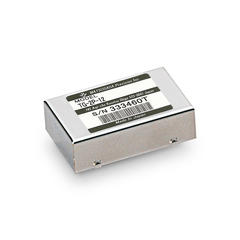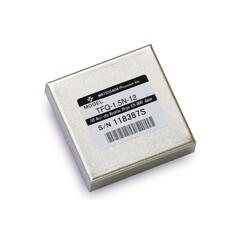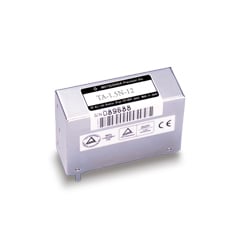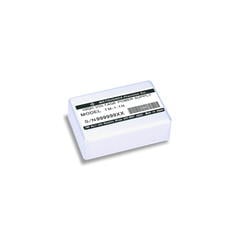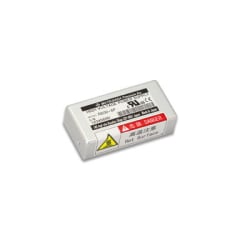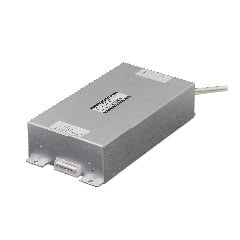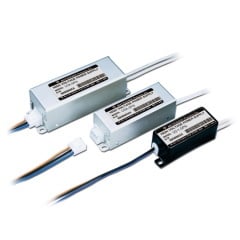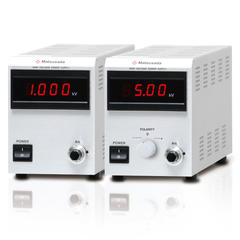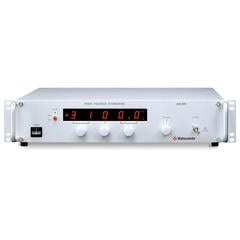A Microchannel Plate (MCP) is a circular plate device that amplifies electrons (signals). It is a key component in two-dimensional detectors designed to sense single particles, ions, photons, other charged particles, and high-energy radiation (like X-rays and gamma rays). In some cases, the complete detection systems built around these plates are also referred to as MCP detectors.
An MCP is a thin (approximately 2 mm thick) plate made of a highly resistive, semiconductive glass, perforated by a dense array of microscopic channels (microchannels). These channels run parallel to each other and are typically tilted at a small angle (a bias angle) relative to the plate's surface. This tilt is crucial for preventing ion feedback and ensuring stable amplification. The diameter of these channels is typically 10 μm, with a pitch (center-to-center spacing) of about 15 μm. A DC voltage, ranging from several hundred volts to a few kilovolts, is applied across the plate's thickness.
When a charged particle or photon strikes the input surface of the plate, it ejects one or more primary electrons. These electrons are accelerated into a microchannel by the electric field created by the applied voltage. As they strike the inner wall of the channel, they trigger a cascading electron avalanche, leading to significant signal amplification (often by a factor of 104 to 107). The amplified cloud of electrons exiting the channel is then detected by a collection anode or a phosphor screen (which converts the electron signal to light) positioned at the output side of the MCP.
Microchannel plates are utilized in various applications, including secondary ion mass spectrometry (SIMS), scanning electron microscopes (SEM), X-ray imaging, night vision devices (as image intensifiers), and time-of-flight mass spectrometry (TOF-MS).

- Related words:
-
- MCP
- Microchannel Plate
- Charged particle
- Ion
- Vacuum ultraviolet light
- X-ray
- Gamma-ray
- Night vision
- SIMS
- SEM
Recommended products
Matsusada Precision provides advanced high-voltage power supplies for various detector applications, including those for MCPs, which require bias voltages ranging from several hundred volts to several kilovolts.



